Elegí la competencia
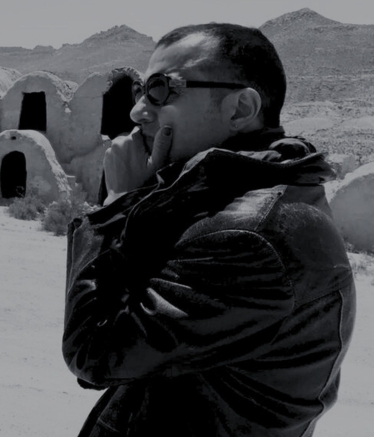
Director de cine, guionista y productor. Entre 1990 y 1994 estudió y trabajó en la Escuela de Cine Metrópolis y cursó la Licenciatura en Ciencias de la Información, en la especialidad de Imagen en la Universidad Complutense de Madrid. En 1996 crea junto a Damián Paris y Lola Mayo, la productora Lolita Films. Su primer largometraje se titula Lo que sé de Lola (2006, 35mm), que fue elegida, por el c...
Director de cine, guionista y productor. Entre 1990 y 1994 estudió y trabajó en la Escuela de Cine Metrópolis y cursó la Licenciatura en Ciencias de la Información, en la especialidad de Imagen en la Universidad Complutense de Madrid. En 1996 crea junto a Damián Paris y Lola Mayo, la productora Lolita Films. Su primer largometraje se titula Lo que sé de Lola (2006, 35mm), que fue elegida, por el conjunto de críticos reunidos anualmente por El Cultural de El Mundo, entre las cinco mejores películas del año. En 2009 estrenó La mujer sin piano, protagonizada por Carmen Machi y Jan Budar, con la que obtuvo la Concha de Plata a la Mejor Dirección en el Festival de San Sebastián. En 2013 estrenó El muerto y ser feliz (film que dedicó a la Cinemateca Uruguaya), con José Sacristán y Roxana Blanco, que viajó por festivales de todo el mundo, fue proyectada en el MoMa de Nueva York y le valió el premio a Mejor Director en el American Film Institute de Los Ángeles. En la Alcoba del Sultán, su último film, recobra esa capacidad de maravilla de los pioneros del cine ante la magia recién descubierta. Actualmente escribe un guión de ficción basado en la vida de Gloria Fuertes.
Film director, scriptwriter and producer, between 1990 and 1994 he studied and worked at the Metrópolis Film School and took a degree in Information Sciences, specialising in Image, at the Complutense University of Madrid. In 1996, together with Damián París and Lola Mayo, he set up the production company Lolita Films. His first feature film, What I Know About Lola (2006, 35mm), was chosen among t...
Film director, scriptwriter and producer, between 1990 and 1994 he studied and worked at the Metrópolis Film School and took a degree in Information Sciences, specialising in Image, at the Complutense University of Madrid. In 1996, together with Damián París and Lola Mayo, he set up the production company Lolita Films. His first feature film, What I Know About Lola (2006, 35mm), was chosen among the five best films of the year by the critics of El Cultural de El Mundo. In 2009 he released Woman without piano, starring Carmen Machi and Jan Budar, which premiered in the Official Selection of the San Sebastian International Film Festival and won the Silver Shell for Best Director. In 2013 he released El muerto y ser feliz, starring José Sacristán and Roxana Blanco, which travelled to festivals all over the world, was screened at the MoMa in New York and won him the Best Director Award at the American Film Institute in Los Angeles. Close to the Sultan, his last film, recaptures the sense of wonder that cinema pioneers felt in the face of a newly discovered magic.
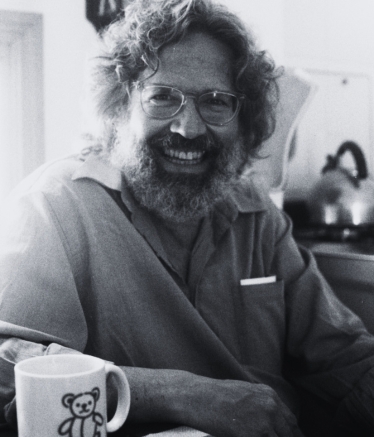
Es profesor del Instituto de Música de la Facultad de Artes de la Udelar y en la Facultad de Comunicación de la Universidad ORT, Montevideo. Es profesor de historia del cine y de lenguaje cinematográfico. Crítico de cine del periódico La Diaria desde su fundación (2005), y antes (desde 1987) en los periódicos La Hora, Z y Placer. Escribe también sobre música en Brecha y ha publicado los libros bio...
Es profesor del Instituto de Música de la Facultad de Artes de la Udelar y en la Facultad de Comunicación de la Universidad ORT, Montevideo. Es profesor de historia del cine y de lenguaje cinematográfico. Crítico de cine del periódico La Diaria desde su fundación (2005), y antes (desde 1987) en los periódicos La Hora, Z y Placer. Escribe también sobre música en Brecha y ha publicado los libros biográficos sobre Eduardo Mateo y Los que Iban Cantando. Produjo y arregló varios discos de música popular uruguaya. En cine trabajó como técnico en Francia y Brasil, en publicidad, cortos de animación y en largometrajes. Realizó dos cortos experimentales en súper 8 en Brasil: Rua sem saída (É proibido jogar lixo neste local) (1983) y O mar quando quebra na praia é bonito é bonito (1984). Fue presidente de la Asociación de Críticos de Cine del Uruguay de 2016 a 2022. Fue jurado (oficial, FIPRESCI y ACCU) en diversos festivales de cine (entre ellos Mar del Plata y la Berlinale).
He is a professor at the Institute of Music at the Faculty of Arts at Udelar and at the Faculty of Communication at the ORT University, Montevideo. He teaches film history and cinematic language. He has been a film critic for the newspaper La Diaria since its foundation (2005), and previously (since 1987) for the newspapers La Hora, Z, and Placer. He also writes about music for Brecha and has publ...
He is a professor at the Institute of Music at the Faculty of Arts at Udelar and at the Faculty of Communication at the ORT University, Montevideo. He teaches film history and cinematic language. He has been a film critic for the newspaper La Diaria since its foundation (2005), and previously (since 1987) for the newspapers La Hora, Z, and Placer. He also writes about music for Brecha and has published biographical books on Eduardo Mateo and Los que Iban Cantando. He produced and arranged several albums of Uruguayan popular music. In film, he worked as a technician in France and Brazil, in advertising, animated shorts, and feature films. He made two experimental short films in Super 8 in Brazil: Rua sem saída (É proibido jogar lixo neste local) (1983) and O mar quando quebra na praia é bonito é bonito (1984). He was president of the Association of Film Critics of Uruguay from 2016 to 2022. He has been a juror (official, FIPRESCI, and ACCU) at various film festivals (including Mar del Plata and the Berlinale).
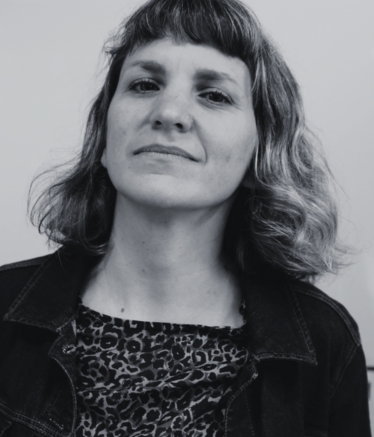
Citarella se graduó como directora de cine en la Universidad del Cine de Buenos Aires. Desde 2005 forma parte de la productora El Pampero Cine, junto a Mariano Llinás, Alejo Moguillansky y Agustín Mendilaharzu. Dirigió películas como Ostende (2011), La mujer de los perros (2015) (codirigida con Verónica Llinás) y Las poetas visitan a Juana Bignozzi (2019) (codirigida con Mercedes Halfon). Trenque ...
Citarella se graduó como directora de cine en la Universidad del Cine de Buenos Aires. Desde 2005 forma parte de la productora El Pampero Cine, junto a Mariano Llinás, Alejo Moguillansky y Agustín Mendilaharzu. Dirigió películas como Ostende (2011), La mujer de los perros (2015) (codirigida con Verónica Llinás) y Las poetas visitan a Juana Bignozzi (2019) (codirigida con Mercedes Halfon). Trenque Lauquen (2022) es su cuarta película y además de haber realizado un largo recorrido por festivales, cosechando premios y reconocimientos, ha sido distribuida y estrenada en diversos territorios. También fue elegida la mejor película del año por la publicación francesa Cahiers du Cinéma. El último trabajo de Citarella como directora fue el cortometraje El affaire Miu Miu (2024) para la marca de ropa del grupo Prada. Citarella es reconocida también como una de las mayores productoras de cine independiente de Argentina. Su trabajo en producción incluye todas las películas realizadas por El Pampero Cine.
Citarella graduated as a film director from the Universidad del Cine in Buenos Aires. Since 2005, she has been part of the production company El Pampero Cine, alongside Mariano Llinás, Alejo Moguillansky, and Agustín Mendilaharzu. She has directed films such as Ostende (2011), La mujer de los perros (2015) (co-directed with Verónica Llinás), and Las poetas visitan a Juana Bignozzi (2019) (co-direc...
Citarella graduated as a film director from the Universidad del Cine in Buenos Aires. Since 2005, she has been part of the production company El Pampero Cine, alongside Mariano Llinás, Alejo Moguillansky, and Agustín Mendilaharzu. She has directed films such as Ostende (2011), La mujer de los perros (2015) (co-directed with Verónica Llinás), and Las poetas visitan a Juana Bignozzi (2019) (co-directed with Mercedes Halfon). Trenque Lauquen (2022) is her fourth film, and in addition to having had a long journey through festivals, garnering awards and recognition, it has been distributed and released in various territories. It was also chosen as the best film of the year by the French publication Cahiers du Cinéma. Citarella's latest work as a director was the short film El affaire Miu Miu (2024) for the fashion brand of the Prada group. Citarella is also recognized as one of the leading producers of independent cinema in Argentina. Her production work includes all the films made by El Pampero Cine.
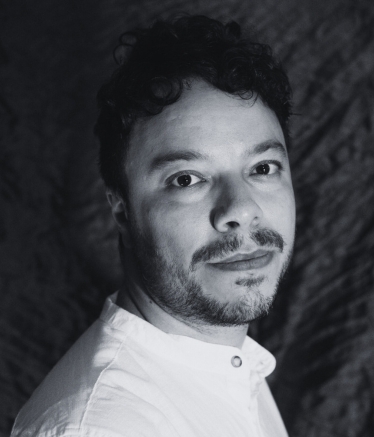
Rafael Saar es director, montajista y guionista. Doctorando y profesor de Cine por la Universidade Federal Fluminense, dirigió cortos como Depois de tudo, ganador de más de 10 premios, y Homem-ave, parte de “El roce de los cuerpos”, exposición itinerante del Museo Reina Sofía (Madrid). Editó Mar de fogo (Joel Pizzini, Berlinale 2015). Su primer largometraje, Yorimatã, ganó el premio a Mejor Pelícu...
Rafael Saar es director, montajista y guionista. Doctorando y profesor de Cine por la Universidade Federal Fluminense, dirigió cortos como Depois de tudo, ganador de más de 10 premios, y Homem-ave, parte de “El roce de los cuerpos”, exposición itinerante del Museo Reina Sofía (Madrid). Editó Mar de fogo (Joel Pizzini, Berlinale 2015). Su primer largometraje, Yorimatã, ganó el premio a Mejor Película en In-Edit Brasil 2015. Peixe abissal (2023) se estrenó en Tiradentes y ganó Mejor Documental en Queer Lisboa y Mejor Director en FIDBA.Su documental Sem Vergonha se estrenó en la Mostra Internacional de São Paulo 2024 y se exhibirá en la Mostra de Tiradentes 2025, en Brasil.
Rafael Saar is a director, editor, and screenwriter. A PhD candidate and professor of Film at the Universidade Federal Fluminense, he directed short films such as Depois de tudo, which won more than 10 awards, and Homem-ave, part of "El roce de los cuerpos," an itinerant exhibition at the Museo Reina Sofía (Madrid). He edited Mar de fogo (Joel Pizzini, Berlinale 2015). His first feature film, Yori...
Rafael Saar is a director, editor, and screenwriter. A PhD candidate and professor of Film at the Universidade Federal Fluminense, he directed short films such as Depois de tudo, which won more than 10 awards, and Homem-ave, part of "El roce de los cuerpos," an itinerant exhibition at the Museo Reina Sofía (Madrid). He edited Mar de fogo (Joel Pizzini, Berlinale 2015). His first feature film, Yorimatã, won the Best Film award at In-Edit Brasil 2015. Peixe abissal (2023) premiered at Tiradentes and won Best Documentary at Queer Lisboa and Best Director at FIDBA. His documentary Sem Vergonha premiered at the São Paulo International Film Festival 2024 and will be showcased at the Tiradentes Film Festival 2025 in Brazil.
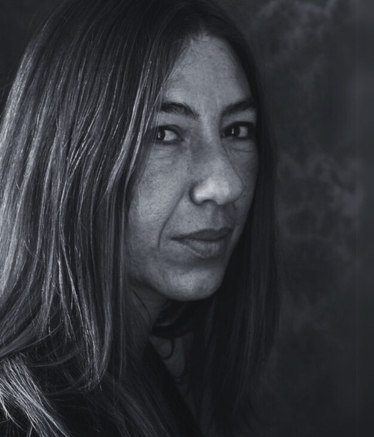
Responsable de la empresa De la Piedra Producciones. Dedicada al mundo de la producción cinematográfica y televisiva desde hace más de dos décadas, trabajó en películas como Carne de gallina (Javier Maqua, 2002) o El Orfanato (Juan Antonio Bayona, 2007). Sus últimas películas como productora ejecutiva son: Retaguardia (2024) Ramón Lluís Bande, El Cine, 5 (2023) de Elisa Cepedal, Contracampos (20...
Responsable de la empresa De la Piedra Producciones. Dedicada al mundo de la producción cinematográfica y televisiva desde hace más de dos décadas, trabajó en películas como Carne de gallina (Javier Maqua, 2002) o El Orfanato (Juan Antonio Bayona, 2007). Sus últimas películas como productora ejecutiva son: Retaguardia (2024) Ramón Lluís Bande, El Cine, 5 (2023) de Elisa Cepedal, Contracampos (2022) de Ramón Lluís Bande, Hilos (2022) de Tito Montero, Vaca mugiendo entre ruinas (2020) de Ramón Lluís Bande, Hotel Asturies (2019) de Ramón Lluís Bande, Cantares de una revolución (2018) de Ramón Lluís Bande, El pasado presente (2018) de Tito Montero.
She is the head of the company De la Piedra Producciones. Dedicated to the world of film and television production for over two decades, she has worked on films such as Carne de gallina (Javier Maqua, 2002) and El Orfanato (Juan Antonio Bayona, 2007). Her latest films as executive producer include: Retaguardia (2024) by Ramón Lluis Bande, El Cine, 5 (2023) by Elisa Cepedal, Contracampos (2022) by ...
She is the head of the company De la Piedra Producciones. Dedicated to the world of film and television production for over two decades, she has worked on films such as Carne de gallina (Javier Maqua, 2002) and El Orfanato (Juan Antonio Bayona, 2007). Her latest films as executive producer include: Retaguardia (2024) by Ramón Lluis Bande, El Cine, 5 (2023) by Elisa Cepedal, Contracampos (2022) by Ramón Lluis Bande, Hilos (2022) by Tito Montero, Vaca mugiendo entre ruinas (2020) by Ramón Lluis Bande, Hotel Asturies (2019) by Ramón Lluis Bande, Cantares de una revolución (2018) by Ramón Lluis Bande, and El pasado presente (2018) by Tito Montero.

Laura Nevole es actriz, dramaturga y licenciada en Psicología por la Universidad de Buenos Aires. Se desempeñó como docente e investigadora en las Facultades de Psicología y de Ciencias Sociales (UBA) durante más de 15 años. Es formadora de actuantes y artistas escénicos desde 2015. Trabaja en cine y en teatro bajo la dirección de Cappa, Cacace, Tellas, Seles, Sabbadini, Fanelli, Katz, Federico Lu...
Laura Nevole es actriz, dramaturga y licenciada en Psicología por la Universidad de Buenos Aires. Se desempeñó como docente e investigadora en las Facultades de Psicología y de Ciencias Sociales (UBA) durante más de 15 años. Es formadora de actuantes y artistas escénicos desde 2015. Trabaja en cine y en teatro bajo la dirección de Cappa, Cacace, Tellas, Seles, Sabbadini, Fanelli, Katz, Federico Luis, Repetto, Pelayo, entre otrxs. Participa como actriz en numerosos festivales nacionales e internacionales. En 2019 funda un grupo de investigación escénica junto a Pablo Chao, Lucas Crespi y Christian García, del que surge la obra Las Cargas. En 2022 forma parte de la Retrospectiva teatral de Lucía Seles y de su Retrospectiva cinematográfica en la Sala Lugones, en el Complejo Teatral de Buenos Aires. En 2025 estrenará Nos espera Berlín de Christian García y La Obra Siamesa de Laura Sbdar.
Laura Nevole is an actress, playwright, and holds a degree in Psychology from the University of Buenos Aires. She worked as a teacher and researcher at the Faculties of Psychology and Social Sciences (UBA) for more than 15 years. She has been training actors and performing artists since 2015. She works in film and theater under the direction of Cappa, Cacace, Tellas, Seles, Sabbadini, Fanelli, Kat...
Laura Nevole is an actress, playwright, and holds a degree in Psychology from the University of Buenos Aires. She worked as a teacher and researcher at the Faculties of Psychology and Social Sciences (UBA) for more than 15 years. She has been training actors and performing artists since 2015. She works in film and theater under the direction of Cappa, Cacace, Tellas, Seles, Sabbadini, Fanelli, Katz, Federico Luis, Repetto, Pelayo, among others. She has participated as an actress in numerous national and international festivals. In 2019, she founded a theatrical research group with Pablo Chao, Lucas Crespi, and Christian García, which led to the creation of the play Las Cargas. In 2022, she was part of the theatrical retrospective of Lucía Seles and her cinematic retrospective at the Sala Lugones, in the Buenos Aires Theater Complex. In 2025, she will premiere Nos espera Berlín by Christian García and La Obra Siamesa by Laura Sbdar.
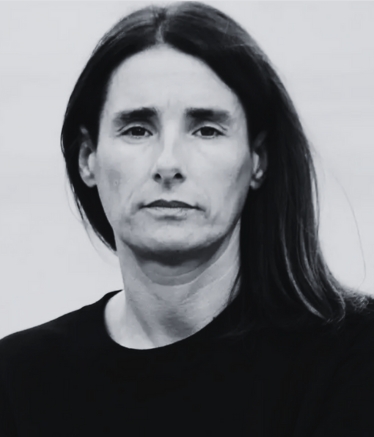
Desde siempre trabajó en diferentes formatos: cortometrajes, publicidad, documentales y cine de ficción. Menos Nove, el cortometraje que realizó en 1997, confirmó su deseo de seguir una trayectoria profesional en el ámbito del cine y el audiovisual. Realizó además telefilms y series premiadas internacionalmente. En 2019 estrenó su primer largometraje, Linhas Tortas, galardonado con el Premio del ...
Desde siempre trabajó en diferentes formatos: cortometrajes, publicidad, documentales y cine de ficción. Menos Nove, el cortometraje que realizó en 1997, confirmó su deseo de seguir una trayectoria profesional en el ámbito del cine y el audiovisual. Realizó además telefilms y series premiadas internacionalmente. En 2019 estrenó su primer largometraje, Linhas Tortas, galardonado con el Premio del Público Europeo en la 7ª edición del ARTE Kino Festival. Su último largometraje, O Melhor dos Mundos, se estrenó en el festival IndieLisboa 2024 y a nivel internacional en el Thessaloniki Film Festival 2024. Tuvo su estreno comercial en las salas de cine portuguesas en octubre y en este momento está circulando por importantes festivales internacionales.
She has always worked in different formats: short films, advertising, documentaries, and fiction films. Menos Nove, the short film she made in 1997, confirmed her desire to pursue a professional career in the field of cinema and audiovisual production. She has also directed telefilms and internationally awarded series. In 2019, she released her first feature film, Linhas Tortas, which won the Euro...
She has always worked in different formats: short films, advertising, documentaries, and fiction films. Menos Nove, the short film she made in 1997, confirmed her desire to pursue a professional career in the field of cinema and audiovisual production. She has also directed telefilms and internationally awarded series. In 2019, she released her first feature film, Linhas Tortas, which won the European Audience Award at the 7th edition of the ARTE Kino Festival. Her latest feature film, O Melhor dos Mundos, premiered at the IndieLisboa 2024 festival and, internationally, at the Thessaloniki Film Festival 2024. It had its commercial release in Portuguese cinemas last October and is currently circulating in major international festivals.

Es director, guionista y actor. Se graduó en Realización Cinematográfica en la Universidad del Cine (FUC) en 2011. Desde 2017 realiza consultorías de guión. Como actor, participó en obras de teatro de Santiago Loza y en películas de Lukas Valenta Rinner, Jazmín López, Teddy Williams, entre otros. Como guionista, trabajó en el segundo largometraje de Lukas Valenta Rinner, Los Decentes, y en su próx...
Es director, guionista y actor. Se graduó en Realización Cinematográfica en la Universidad del Cine (FUC) en 2011. Desde 2017 realiza consultorías de guión. Como actor, participó en obras de teatro de Santiago Loza y en películas de Lukas Valenta Rinner, Jazmín López, Teddy Williams, entre otros. Como guionista, trabajó en el segundo largometraje de Lukas Valenta Rinner, Los Decentes, y en su próximo tercer film, Landscapes of Fear. Su ópera prima, Juana a los 12 (guión, dirección), recibió premios en el FESALP (Mejor Largometraje), el D’A Film Festival de Barcelona (Premio Talents) y el Festival de Cine Leonardo Favio (Mejor Película). Su segundo largometraje como director, guionista y actor, Arturo a los 30, se estrenó en el Forum de la Berlinale y participó en el Festival Cineuropa( Santiago de Compostela); el festival de Torino, donde ganó el premio a Mejor Actor; en el Festival Internacional de Cine de Las Palmas de Gran Canaria, donde obtuvo el premio a Mejor Interpretación; y en el BAFICI, donde recibió los premios a Mejor Dirección y Premio del Público. Actualmente está nominado a Actor Revelación en los Premios Cóndor (2025).
He is a director, screenwriter, and actor. He graduated in Film Production from the Universidad del Cine (FUC) in 2011. Since 2017, he has been doing script consultations. As an actor, he has participated in plays by Santiago Loza and in films by Lukas Valenta Rinner, Jazmín López, Teddy Williams, among others. As a screenwriter, he worked on Lukas Valenta Rinner's second feature film, Los Decente...
He is a director, screenwriter, and actor. He graduated in Film Production from the Universidad del Cine (FUC) in 2011. Since 2017, he has been doing script consultations. As an actor, he has participated in plays by Santiago Loza and in films by Lukas Valenta Rinner, Jazmín López, Teddy Williams, among others. As a screenwriter, he worked on Lukas Valenta Rinner's second feature film, Los Decentes, and on his upcoming third film, Landscapes of Fear. His debut film, Juana a los 12 (script, direction), received awards at FESALP (Best Feature Film), the D’A Film Festival in Barcelona (Talent Award), and the Leonardo Favio Film Festival (Best Film). His second feature film as director, screenwriter, and actor, Arturo a los 30, premiered at the Berlinale Forum and participated in the Cineuropa Festival (Santiago de Compostela), the Torino Film Festival, where he won the Best Actor award, the Las Palmas de Gran Canaria International Film Festival, where he received the Best Performance award, and the BAFICI, where he won Best Direction and the Audience Award. He is currently nominated for Best New Actor at the Cóndor Awards (2025).
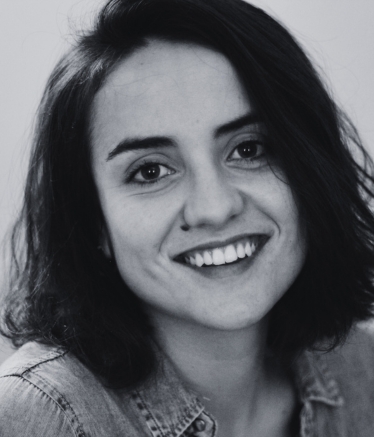
Formada en Comunicación Audiovisual en la Universidad del País Vasco. Focalizó sus estudios en cine en la Universidad ORT de Uruguay, donde comienza trabajos de programación en el Festival Cinematográfico Internacional del Uruguay. Ha realizado trabajos técnicos en el Departamento de Cine de Tabakalera Donostia, en SSIFF y también trabaja como programadora en Zinegoak, Festival de Cine y Artes Esc...
Formada en Comunicación Audiovisual en la Universidad del País Vasco. Focalizó sus estudios en cine en la Universidad ORT de Uruguay, donde comienza trabajos de programación en el Festival Cinematográfico Internacional del Uruguay. Ha realizado trabajos técnicos en el Departamento de Cine de Tabakalera Donostia, en SSIFF y también trabaja como programadora en Zinegoak, Festival de Cine y Artes Escénicas LGTBIQ+ de Bilbao. Compagina la programación con trabajos de ayudantía de dirección en rodajes; películas como Ventajas de viajar en tren, American Carnage, Hil Kanpaiak, Erase una vez en Euskadi, La Fortuna, Maixabel, Irati, 20.000 especies de abejas, La Ermita, Querer, Los Domingos o Así seguirán las cosas. En 2025 estrenará su primera obra como directora; Ultramarino producida por Doxa.
She studied Audiovisual Communication at the University of the Basque Country. She focused her studies on film at the ORT University of Uruguay, where she began working in programming for the International Film Festival of Uruguay. She has worked in technical roles in the Film Department of Tabakalera Donostia, at the San Sebastián International Film Festival (SSIFF), and also works as a programme...
She studied Audiovisual Communication at the University of the Basque Country. She focused her studies on film at the ORT University of Uruguay, where she began working in programming for the International Film Festival of Uruguay. She has worked in technical roles in the Film Department of Tabakalera Donostia, at the San Sebastián International Film Festival (SSIFF), and also works as a programmer for Zinegoak, the LGBTQ+ Film and Performing Arts Festival in Bilbao. She combines programming with assistant directing roles on film sets, working on films such as Ventajas de viajar en tren, American Carnage, Hil Kanpaiak, Erase una vez en Euskadi, La Fortuna, Maixabel, Irati, 20.000 especies de abejas, La Ermita, Querer, Los Domingos, and Así seguirán las cosas. In 2025, she will premiere her first work as a director, Ultramarino, produced by Doxa.

Integrante de Amnistía Internacional Uruguay, se desempeñó en diferentes espacios de activismo y actualmente es presidenta de la Junta Directiva. En ese marco, ha participado en diferentes instancias de formación y discusión política. Integró el jurado de la categoría Derechos Humanos en el 31° Festival Cinematográfico Internacional del Uruguay. Consultora en Comunicación y fotógrafa, posee exper...
Integrante de Amnistía Internacional Uruguay, se desempeñó en diferentes espacios de activismo y actualmente es presidenta de la Junta Directiva. En ese marco, ha participado en diferentes instancias de formación y discusión política. Integró el jurado de la categoría Derechos Humanos en el 31° Festival Cinematográfico Internacional del Uruguay. Consultora en Comunicación y fotógrafa, posee experiencia en el trabajo con organizaciones de la sociedad civil. Actualmente coordina el proyecto Onuno, pensado para problematizar, a través de la fotografía, sobre la crianza monoparental en clave de derechos.
Member of Amnesty International Uruguay, she has been involved in various activist spaces and currently serves as Chair of the Board of Directors. In this role, she has participated in several training sessions and political discussions. She was part of the jury for the Human Rights category at the 31st Uruguay International Film Festival. A communications consultant and photographer, she has exp...
Member of Amnesty International Uruguay, she has been involved in various activist spaces and currently serves as Chair of the Board of Directors. In this role, she has participated in several training sessions and political discussions. She was part of the jury for the Human Rights category at the 31st Uruguay International Film Festival. A communications consultant and photographer, she has experience working with civil society organizations. She currently coordinates the Onuno project, which uses photography to explore and raise awareness about single parenting from a rights-based perspective.

Es cineasta y escritor. Entre sus películas destacan títulos como El fulgor (2002), Estratexa (2003), De la Fuente (2004), El Paisano, un retratu colectivu (2005), La carta de Bárbara (2007), Llende (2012), Equí y n’otru tiempu (2014), El nome de los árboles (2015), Vida vaquera (2016), Aún me quedan balas para dibujar (2017), Escoréu, 24 d’avientu de 1937 (2017), Cantares de una revolución (2018)...
Es cineasta y escritor. Entre sus películas destacan títulos como El fulgor (2002), Estratexa (2003), De la Fuente (2004), El Paisano, un retratu colectivu (2005), La carta de Bárbara (2007), Llende (2012), Equí y n’otru tiempu (2014), El nome de los árboles (2015), Vida vaquera (2016), Aún me quedan balas para dibujar (2017), Escoréu, 24 d’avientu de 1937 (2017), Cantares de una revolución (2018), Vaca mugiendo enrre ruinas (2020), Contracampos (2022) o Retaguardia (2024). Sus últimos libros publicados son Cuaderno de la revolución (2019), Cuaderno de la guerra (2021), El paisaxe belixerante (2024) y Cuaderno de la retaguardia (2024).
He is a filmmaker and writer. Some of his notable films include El fulgor (2002), Estratexa (2003), De la Fuente (2004), El Paisano, un retrato colectivo (2005), La carta de Bárbara (2007), Llende (2012), Equí y n’otru tiempu (2014), El nome de los árboles (2015), Vida vaquera (2016), Aún me quedan balas para dibujar (2017), Escoréu, 24 d’avientu de 1937 (2017), Cantares de una revolución (2018), ...
He is a filmmaker and writer. Some of his notable films include El fulgor (2002), Estratexa (2003), De la Fuente (2004), El Paisano, un retrato colectivo (2005), La carta de Bárbara (2007), Llende (2012), Equí y n’otru tiempu (2014), El nome de los árboles (2015), Vida vaquera (2016), Aún me quedan balas para dibujar (2017), Escoréu, 24 d’avientu de 1937 (2017), Cantares de una revolución (2018), Vaca mugiendo entre ruinas (2020), Contracampos (2022), and Retaguardia (2024). His most recent published books are Cuaderno de la revolución (2019), Cuaderno de la guerra (2021), El paisaje beligerante (2024), and Cuaderno de la retaguardia (2024).

Magíster en Comunicación, con énfasis en Recepción y Cultura (UCUDAL). Licenciada en Artes Plásticas y Visuales (UdelaR). Cofundadora y directora ejecutiva del MACMO | Museo de Arte Contemporáneo de Montevideo y de la Revista Museo. Integrante de la Red Conceptualismos del Sur y de Artistxs Visualxs del Sur. Expone nacional e internacionalmente. Es premiada en diversas ocasiones por el Fondo Concu...
Magíster en Comunicación, con énfasis en Recepción y Cultura (UCUDAL). Licenciada en Artes Plásticas y Visuales (UdelaR). Cofundadora y directora ejecutiva del MACMO | Museo de Arte Contemporáneo de Montevideo y de la Revista Museo. Integrante de la Red Conceptualismos del Sur y de Artistxs Visualxs del Sur. Expone nacional e internacionalmente. Es premiada en diversas ocasiones por el Fondo Concursable para la Cultura en las categorías Artes visuales, Revista especializada en cultura e Intervención Urbana. Su obra aborda el desmantelamiento de los derechos humanos, investigando la construcción de la memoria sobre la última dictadura en Uruguay a través de proyectos que interpelan el presente.
She holds a Master's degree in Communication, with an emphasis on Reception and Culture (UCUDAL), and a degree in Plastic and Visual Arts (UdelaR). She is a co-founder and executive director of the MACMO | Museum of Contemporary Art of Montevideo and the Revista Museo. She is a member of the Conceptualisms of the South Network and Visual Artists of the South. She exhibits both nationally and inter...
She holds a Master's degree in Communication, with an emphasis on Reception and Culture (UCUDAL), and a degree in Plastic and Visual Arts (UdelaR). She is a co-founder and executive director of the MACMO | Museum of Contemporary Art of Montevideo and the Revista Museo. She is a member of the Conceptualisms of the South Network and Visual Artists of the South. She exhibits both nationally and internationally. She has been awarded multiple times by the Contestable Fund for Culture in the categories of Visual Arts, Specialized Culture Magazine, and Urban Intervention. Her work addresses the dismantling of human rights, investigating the construction of memory about the last dictatorship in Uruguay through projects that challenge the present.

Soy Matilde Rodríguez, nací en Montevideo en 2006. Soy estudiante de la Licenciatura en Ciencias Biológicas en la Facultad de Ciencias. Mi lado artístico está presente desde los 5 años, primero con la danza clásica y ahora con el flamenco. Mi gusto por el cine surgió hace unos años cuando decidí ver las películas que me recomendaba mi hermano, para luego comentarlas con él (Kill Bill, Pulp Fiction...
Soy Matilde Rodríguez, nací en Montevideo en 2006. Soy estudiante de la Licenciatura en Ciencias Biológicas en la Facultad de Ciencias. Mi lado artístico está presente desde los 5 años, primero con la danza clásica y ahora con el flamenco. Mi gusto por el cine surgió hace unos años cuando decidí ver las películas que me recomendaba mi hermano, para luego comentarlas con él (Kill Bill, Pulp Fiction, Parasite, entre otras). Desde ese momento no he dejado de ver películas y reseñarlas. Me gusta descubrir películas poco conocidas y compartir con otras personas interesadas en el cine. Además disfruto de bailar, hacer deporte y aprender sobre genética.
I am Matilde Rodríguez, I was born in Montevideo in 2006. I am a student of the Bachelor’s degree in Biological Sciences at the Faculty of Sciences. My artistic side has been present since I was 5 years old, first with classical dance and now with flamenco. My interest in cinema started a few years ago when I decided to watch the films my brother recommended to me, and then discuss them with him (...
I am Matilde Rodríguez, I was born in Montevideo in 2006. I am a student of the Bachelor’s degree in Biological Sciences at the Faculty of Sciences. My artistic side has been present since I was 5 years old, first with classical dance and now with flamenco. My interest in cinema started a few years ago when I decided to watch the films my brother recommended to me, and then discuss them with him (Kill Bill, Pulp Fiction, Parasite, among others). Since then, I haven’t stopped watching movies and reviewing them. I enjoy discovering lesser-known films and sharing them with other people who are interested in cinema. I also enjoy dancing, doing sports, and learning about genetics.
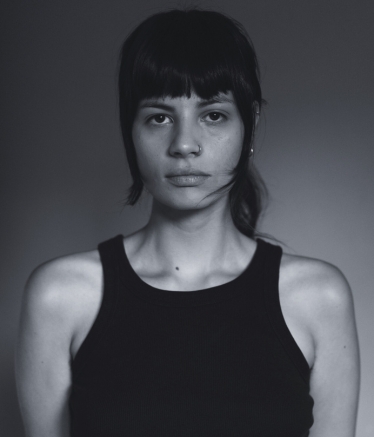
Estudiante de la Licenciatura en Comunicación de la Udelar, con especial interés en la filosofía, la literatura, el cine y la música. Le apasiona descubrir la forma en que estas disciplinas dialogan y se articulan en cada época y contexto. Escribe crónicas, saca fotos en analógico y ha realizado performances e instalaciones artísticas como parte de su búsqueda expresiva. Ve mucho cine y ha explor...
Estudiante de la Licenciatura en Comunicación de la Udelar, con especial interés en la filosofía, la literatura, el cine y la música. Le apasiona descubrir la forma en que estas disciplinas dialogan y se articulan en cada época y contexto. Escribe crónicas, saca fotos en analógico y ha realizado performances e instalaciones artísticas como parte de su búsqueda expresiva. Ve mucho cine y ha explorado este lenguaje desde distintos roles, incluyendo la producción de una muestra de cortometrajes. Se introdujo en la realización de forma autodidacta, como un devenir natural de su necesidad de narrar. Encuentra una gran fuente de inspiración en Agnès Varda, cuya obra la llevó a reafirmar su deseo de hacer cine: un cine en la intersección precisa entre el documental y la ficción.
She is a student of the Bachelor's degree in Communication at Udelar, with a special interest in philosophy, literature, cinema, and music. She is passionate about discovering how these disciplines interact and are articulated in each era and context. She writes chronicles, takes photographs in analog, and has created performances and art installations as part of her expressive journey. She watch...
She is a student of the Bachelor's degree in Communication at Udelar, with a special interest in philosophy, literature, cinema, and music. She is passionate about discovering how these disciplines interact and are articulated in each era and context. She writes chronicles, takes photographs in analog, and has created performances and art installations as part of her expressive journey. She watches a lot of films and has explored this medium from different roles, including producing a short film showcase. She began filmmaking in a self-taught manner, as a natural extension of her need to tell stories. She finds great inspiration in Agnès Varda, whose work led her to reaffirm her desire to make cinema: a cinema at the precise intersection between documentary and fiction.

Nacido el 6 de abril del año 2005, en Montevideo, Uruguay. Estudió cine desde el año 2018 en talleres y en la escuela de cine Juan Bautista Crosa dentro del barrio Peñarol. Grabando sus primeros cortometrajes y adquiriendo conocimientos de cine desde los doce años. Egresó en 2023 del bachillerato UTU con orientación en audiovisuales y actualmente está cursando una tecnicatura en guión, producción ...
Nacido el 6 de abril del año 2005, en Montevideo, Uruguay. Estudió cine desde el año 2018 en talleres y en la escuela de cine Juan Bautista Crosa dentro del barrio Peñarol. Grabando sus primeros cortometrajes y adquiriendo conocimientos de cine desde los doce años. Egresó en 2023 del bachillerato UTU con orientación en audiovisuales y actualmente está cursando una tecnicatura en guión, producción y dirección de arte. Ha realizado independientemente un cortometraje (La típica, 2023) que quedó nominado en el Festival Nacional de Cine Estudiantil (FENACIES) y el videoclip de la canción “Nuevamente” de la banda “Otro Tavella y Los Embajadores del Buen Gusto”
Born on April 6, 2005, in Montevideo, Uruguay. He studied film since 2018 in workshops and at the Juan Bautista Crosa film school in the Peñarol neighborhood. He started filming his first short films and acquiring knowledge of cinema at the age of twelve. He graduated in 2023 from the UTU high school with a focus on audiovisuals and is currently pursuing a technical degree in scriptwriting, produc...
Born on April 6, 2005, in Montevideo, Uruguay. He studied film since 2018 in workshops and at the Juan Bautista Crosa film school in the Peñarol neighborhood. He started filming his first short films and acquiring knowledge of cinema at the age of twelve. He graduated in 2023 from the UTU high school with a focus on audiovisuals and is currently pursuing a technical degree in scriptwriting, production, and art direction. He independently created a short film (La típica, 2023), which was nominated at the National Student Film Festival (FENACIES), and the music video for the song “Nuevamente” by the band Otro Tavella y Los Embajadores del Buen Gusto.
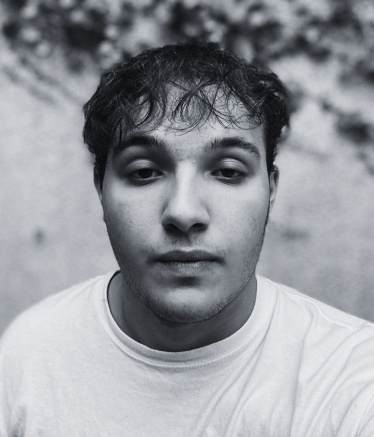
Nací en el barrio Aduana el 9 de octubre del 2007, a muy temprana edad me mudé al barrio Palermo, al mismo lugar donde mi padre tiene el taller de plástica YULELE , desde muy chico partícipe del mismo y siempre me interesaron tanto las artes plásticas como la fotografía. En la cooperativa donde vivía siempre estuve influenciado por mucha fotografía y pintura pero fue al llegar al barrio Palermo d...
Nací en el barrio Aduana el 9 de octubre del 2007, a muy temprana edad me mudé al barrio Palermo, al mismo lugar donde mi padre tiene el taller de plástica YULELE , desde muy chico partícipe del mismo y siempre me interesaron tanto las artes plásticas como la fotografía. En la cooperativa donde vivía siempre estuve influenciado por mucha fotografía y pintura pero fue al llegar al barrio Palermo donde alquile por primera vez una película en el videoclub del cordón, supongo que fue de los últimos en cerrar, al entrar en bachillerato comencé a ir casi todas las semanas a cinemateca, desde ese momento decidí que quería dedicarme al cine. Realice el taller de verano « Laboratorio de Escritura Creativa » en la ECU. Este año curso 6to en el liceo zorrilla, al egresar quisiera participar por la beca en la carrera de realización cinematográfica, creo que mi género favorito es el falso documental, también me interesa mucho la ilustración, el diseño gráfico y la serigrafía.
I was born in the Aduana neighborhood on October 9, 2007. At a very young age, I moved to the Palermo neighborhood, to the same place where my father has the YULELE plastic workshop. From a very young age, I participated in it, and I’ve always been interested in both visual arts and photography. In the cooperative where I lived, I was always influenced by a lot of photography and painting, but it...
I was born in the Aduana neighborhood on October 9, 2007. At a very young age, I moved to the Palermo neighborhood, to the same place where my father has the YULELE plastic workshop. From a very young age, I participated in it, and I’ve always been interested in both visual arts and photography. In the cooperative where I lived, I was always influenced by a lot of photography and painting, but it was when I moved to Palermo that I rented my first movie at the video store in the Cordón area. I guess it was one of the last to close. When I started high school, I began going almost every week to the Cinematheque, and from that moment, I decided I wanted to dedicate myself to cinema. I took the summer workshop "Laboratorio de Escritura Creativa" at the ECU. This year, I’m in 6th grade at Liceo Zorrilla. After graduating, I would like to apply for the scholarship to study film direction. I think my favorite genre is the mockumentary, and I’m also very interested in illustration, graphic design, and screen printing.

Nacido en Montevideo en los 2000, vivió durante su adolescencia en la ciudad de Maldonado donde estudió fotografía. Recientemente recibido como psicólogo en la Universidad de la República, su tránsito formativo estuvo teñido por aproximaciones artísticas y filosófico-vitalistas a la profesión. Desde un tiempo a esta parte y compartiendo la inquietud con amigxs, se ha aproximado al cine con la prem...
Nacido en Montevideo en los 2000, vivió durante su adolescencia en la ciudad de Maldonado donde estudió fotografía. Recientemente recibido como psicólogo en la Universidad de la República, su tránsito formativo estuvo teñido por aproximaciones artísticas y filosófico-vitalistas a la profesión. Desde un tiempo a esta parte y compartiendo la inquietud con amigxs, se ha aproximado al cine con la premisa de qué quizá allí residen otros modos de pensar, de experimentar el mundo y de existir, insistiendo constantemente en la relación entre el cine y el tiempo. Es baterista de la banda montevideana Tengo un amigo qué anda bien pa’ los audiovisuales, inventor de paisajes sonoros incendiarios en el dúo Chrysaora y en solitario bajo el seudónimo niebla.
Nacido en Montevideo en los 2000, vivió durante su adolescencia en la ciudad de Maldonado donde estudió fotografía. Recientemente recibido como psicólogo en la Universidad de la República, su tránsito formativo estuvo teñido por aproximaciones artísticas y filosófico-vitalistas a la profesión. Desde un tiempo a esta parte y compartiendo la inquietud con amigxs, se ha aproximado al cine con la prem...
Nacido en Montevideo en los 2000, vivió durante su adolescencia en la ciudad de Maldonado donde estudió fotografía. Recientemente recibido como psicólogo en la Universidad de la República, su tránsito formativo estuvo teñido por aproximaciones artísticas y filosófico-vitalistas a la profesión. Desde un tiempo a esta parte y compartiendo la inquietud con amigxs, se ha aproximado al cine con la premisa de qué quizá allí residen otros modos de pensar, de experimentar el mundo y de existir, insistiendo constantemente en la relación entre el cine y el tiempo. Es baterista de la banda montevideana Tengo un amigo qué anda bien pa’ los audiovisuales, inventor de paisajes sonoros incendiarios en el dúo Chrysaora y en solitario bajo el seudónimo niebla.

Hola! Me llamo Simón y tengo 8 años. Nací a fines de otoño por eso es la estación que más gusta. Vivo con mi mamá, mi perra Orilla del mar y mi gata María Bethania (le decimos gatita). Soy hincha del club atlético Peñarol Me encanta jugar con Legos y dibujar cómics, con mi mejor amigo Gabo estamos haciendo una editorial pero todavía no tenemos nombre. Me gusta mucho el chocolate con dulce de lec...
Hola! Me llamo Simón y tengo 8 años. Nací a fines de otoño por eso es la estación que más gusta. Vivo con mi mamá, mi perra Orilla del mar y mi gata María Bethania (le decimos gatita). Soy hincha del club atlético Peñarol Me encanta jugar con Legos y dibujar cómics, con mi mejor amigo Gabo estamos haciendo una editorial pero todavía no tenemos nombre. Me gusta mucho el chocolate con dulce de leche, la nutella , los arrolladitos primavera y los dumplings. Tengo muchos libros y me encanta leer, me gusta mirar series, la que me gusta es Gravity Falls. Mis películas favoritas son las de Star Wars, el episodio VI es la que más me gusta. No me gustan las películas románticas ni el brócoli, aunque soy vegetariano. Me gusta ir a cinemateca, a Cabo Polonio y a los museos de animales.

Es la menor de tres hermanos. Se define como una apasionada de los animales, especialmente de los gatos. Disfruta mucho de los cuentos y las novelas de Roald Dahl y María Elena Walsh, así como de las historietas de Quino. Le encanta cantar y bailar, por lo que adora las películas musicales. Wicked es su filme favorito más reciente dentro de ese género. A la hora de elegir películas para ver en fa...
Es la menor de tres hermanos. Se define como una apasionada de los animales, especialmente de los gatos. Disfruta mucho de los cuentos y las novelas de Roald Dahl y María Elena Walsh, así como de las historietas de Quino. Le encanta cantar y bailar, por lo que adora las películas musicales. Wicked es su filme favorito más reciente dentro de ese género. A la hora de elegir películas para ver en familia, prefiere aquellas protagonizadas por niños y niñas, como Matilda o Mi pobre angelito. También le gustan mucho las películas de animación, en especial las del Estudio Ghibli, como Mi vecino Totoro o Kiki: entregas a domicilio. Sin embargo, otras como El viaje de Chihiro le resultan un poco aterradoras. Ha participado como actriz en varias producciones audiovisuales en el marco del English Festival organizado por su colegio.

Tengo nueve años, vivo y voy a la escuela en Palermo. Amo a los animales, mis mascotas son un caballo que se llama Pepino, una oveja "Ovi" y un perro llamado Capo, pero viven con mis abuelos en el campo. Me gusta la música y el arte, bailo, pinto, hago manualidades y estoy aprendiendo a tocar el piano. También juego videojuegos como Zelda o Minecraft y miro películas. Mi tipo de películas favorita...
Tengo nueve años, vivo y voy a la escuela en Palermo. Amo a los animales, mis mascotas son un caballo que se llama Pepino, una oveja "Ovi" y un perro llamado Capo, pero viven con mis abuelos en el campo. Me gusta la música y el arte, bailo, pinto, hago manualidades y estoy aprendiendo a tocar el piano. También juego videojuegos como Zelda o Minecraft y miro películas. Mi tipo de películas favoritas son las de magia y fantasía, me gustan muchas de Studio Ghibli y las comedias de los noventa como Juego de gemelas y Mi pobre angelito.
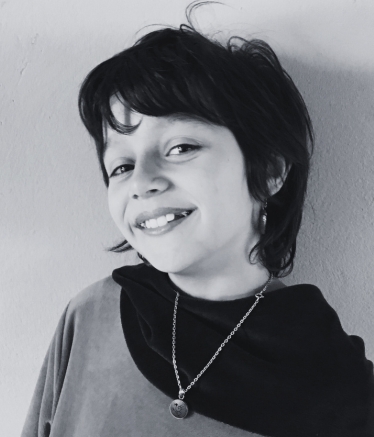
Mi nombre es Isabel pero usualmente me dicen Isa. Vivo con mi padre, mi madre, mi hermano y mi segunda familia son mis dos perros y mi conejo. La mayoría del tiempo dibujo en digital o hago collages pero hace un año me empezó a gustar el cine y el teatro. Eso fue porque hubo un día en el que mi madre y yo fuimos a ver una obra de teatro y desde ahí quedé fascinada. Por otro lado, el cine y la anim...
Mi nombre es Isabel pero usualmente me dicen Isa. Vivo con mi padre, mi madre, mi hermano y mi segunda familia son mis dos perros y mi conejo. La mayoría del tiempo dibujo en digital o hago collages pero hace un año me empezó a gustar el cine y el teatro. Eso fue porque hubo un día en el que mi madre y yo fuimos a ver una obra de teatro y desde ahí quedé fascinada. Por otro lado, el cine y la animación siempre fueron unas de mis cosas favoritas. Hablando de eso, algunas de las películas que me parecieron muy elaboradas y con una buena historia fueron: Anina, Linda quiere pollo, La casa, Flow y muchas más. También quería añadir que me gusta mucho reseñar libros y películas, es como un hobby más.
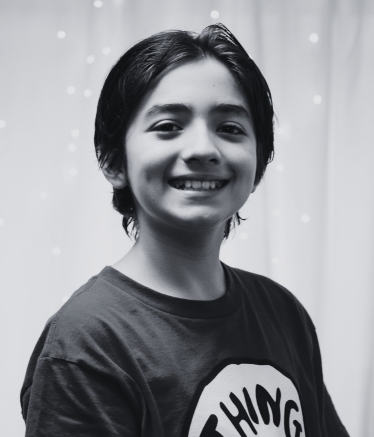
Soy Bruno, tengo 11 años y cumplo el 23 de enero. Soy de Uruguay. Aunque no soy muy fan de los deportes, hago natación. Mi comida favorita es el arroz con huevo frito. Me encanta todo lo relacionado con videojuegos, sobre todo las consolas retro, tengo una Nintendo 64 y una PS3 Slim. Con mi padre vamos a ver a Nacional en fútbol y basket. Conozco el cine gracias a mi madre, que me lleva desde que ...
Soy Bruno, tengo 11 años y cumplo el 23 de enero. Soy de Uruguay. Aunque no soy muy fan de los deportes, hago natación. Mi comida favorita es el arroz con huevo frito. Me encanta todo lo relacionado con videojuegos, sobre todo las consolas retro, tengo una Nintendo 64 y una PS3 Slim. Con mi padre vamos a ver a Nacional en fútbol y basket. Conozco el cine gracias a mi madre, que me lleva desde que era bebé, la mayoría de las veces miro películas con ella. Una de las animaciones que más me ha gustado hasta el momento es Robot Dreams, porque trata temas como dejar ir y amar. También miramos series, mis preferidas son The Middle y Malcolm in the middle. A veces pienso que me gustaría ser actor, participé en una película que se hizo en mi escuela, se llamó “Espectros” y la estrenamos en una sala de cine. También he participado en publicidades. Me encantan los autos, especialmente el Nissan 180SX, cuando sea grande quiero tener uno. Me gusta escuchar música, mi banda favorita es N.W.A.
I’m Bruno, I’m 11 years old. I’m from Uruguay. Although I’m not a big fan of sports, I swim. My favorite food is rice with fried egg. I love everything related to video games, especially retro consoles. I have a Nintendo 64 and a PS3 Slim. My dad and I go to watch Nacional play soccer and basketball. I got into cinema thanks to my mom, who has been taking me since I was a baby, and most of the ti...
I’m Bruno, I’m 11 years old. I’m from Uruguay. Although I’m not a big fan of sports, I swim. My favorite food is rice with fried egg. I love everything related to video games, especially retro consoles. I have a Nintendo 64 and a PS3 Slim. My dad and I go to watch Nacional play soccer and basketball. I got into cinema thanks to my mom, who has been taking me since I was a baby, and most of the time I watch movies with her. One of the animations I’ve liked the most so far is Robot Dreams because it deals with themes like letting go and love. We also watch series, my favorites are The Middle and Malcolm in the Middle. Sometimes I think I’d like to be an actor. I participated in a movie that was made at my school, it was called Espectros, and we premiered it in a movie theater. I’ve also been in commercials. I love cars, especially the Nissan 180SX, and when I grow up, I want to have one. I enjoy listening to music, and my favorite band is N.W.A
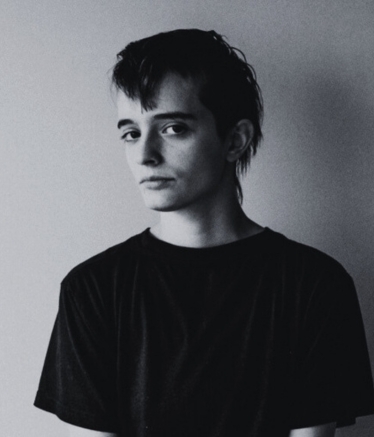
Nací en 2009. Soy actor, escritor y director y mi color favorito es el azul. Vivo en Ciudad Vieja y desde siempre me apasionó pensar y contar historias. Coprotagonicé Belmonte (Federico Veiroj, 2018), protagonicé Guazuvirá (Araújo y Sequeira, 2022) y formé parte del elenco de Cromañón (Fabiana Tiscornia y Marialy Rivas, 2025). En 2023 viajé a Los Ángeles por una beca de actuación y quedé seleccio...
Nací en 2009. Soy actor, escritor y director y mi color favorito es el azul. Vivo en Ciudad Vieja y desde siempre me apasionó pensar y contar historias. Coprotagonicé Belmonte (Federico Veiroj, 2018), protagonicé Guazuvirá (Araújo y Sequeira, 2022) y formé parte del elenco de Cromañón (Fabiana Tiscornia y Marialy Rivas, 2025). En 2023 viajé a Los Ángeles por una beca de actuación y quedé seleccionado en Iberseries para un pitch de una serie que escribí. Escribir, actuar y dirigir son las cosas que más amo hacer. Ahora estoy trabajando en mi primera película Todas las cosas que me hacen feliz, que vamos a rodar en junio que es una adaptación de una novela corta que escribí y que voy a dirigir.
I was born in 2009. I am an actor, writer, and director, and my favorite color is blue. I live in Ciudad Vieja, and I've always been passionate about thinking and telling stories. I co-starred in Belmonte (Federico Veiroj, 2018), starred in Guazuvirá (Araújo and Sequeira, 2022), and was part of the cast of Cromañón (Fabiana Tiscornia and Marialy Rivas, 2025). In 2023, I traveled to Los Angeles fo...
I was born in 2009. I am an actor, writer, and director, and my favorite color is blue. I live in Ciudad Vieja, and I've always been passionate about thinking and telling stories. I co-starred in Belmonte (Federico Veiroj, 2018), starred in Guazuvirá (Araújo and Sequeira, 2022), and was part of the cast of Cromañón (Fabiana Tiscornia and Marialy Rivas, 2025). In 2023, I traveled to Los Angeles for an acting scholarship and was selected for Iberseries for a pitch of a series I wrote. Writing, acting, and directing are the things I love to do most. I am currently working on my first film, All the Things That Make Me Happy, which we will shoot in June. It's an adaptation of a short novel I wrote, and I will be directing it.

Soy Dante Rodríguez Osores, actualmente voy a 3er(9no) año de liceo. Soy una persona andrógina de 14 años, mi color favorito es el rojo. Tengo una gata llamada Nube y un perro llamado Nikita a los cuales quiero mucho, me interesa la moda, las luchas por los derechos humanos y la ecología. Desde chicx adoro las películas e historias, tanto verlas, oirlas como escribirlas e imaginarlas. Hace tiem...
Soy Dante Rodríguez Osores, actualmente voy a 3er(9no) año de liceo. Soy una persona andrógina de 14 años, mi color favorito es el rojo. Tengo una gata llamada Nube y un perro llamado Nikita a los cuales quiero mucho, me interesa la moda, las luchas por los derechos humanos y la ecología. Desde chicx adoro las películas e historias, tanto verlas, oirlas como escribirlas e imaginarlas. Hace tiempo ando buscando mi camino en el arte, asistiendo a talleres de actuación y este año asisto al curso de Implosivo. Además dibujo y escribo poemas.
I am Dante Rodríguez Osores, and I am currently in 3rd (9th) year of high school. I am a 14-year-old androgynous person, and my favorite color is red. I have a cat named Nube and a dog named Nikita, and I love them very much. I am interested in fashion, human rights struggles, and ecology. Since I was little, I have loved movies and stories, whether watching them, listening to them, writing them...
I am Dante Rodríguez Osores, and I am currently in 3rd (9th) year of high school. I am a 14-year-old androgynous person, and my favorite color is red. I have a cat named Nube and a dog named Nikita, and I love them very much. I am interested in fashion, human rights struggles, and ecology. Since I was little, I have loved movies and stories, whether watching them, listening to them, writing them, or imagining them. I have been searching for my path in art for some time, attending acting workshops, and this year I am attending the Implosivo course. I also draw and write poems.
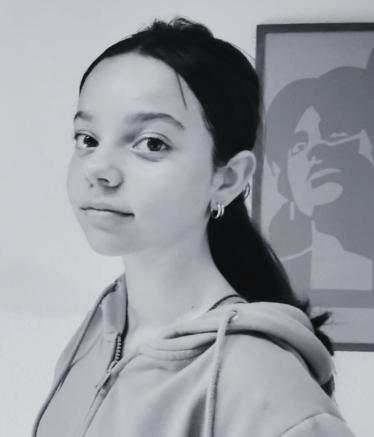
Hola, mi nombre es Clara Vaz, tengo 12 años y vivo con mi madre, mi hermana y mi gata. En cuarto de primaria empecé a ir a la escuela artística Hugo Balzo, ahí hacía de todo y lo que más me gustaba era teatro y también cursé un año particular de eso. Desde chica me gusta ver películas, mi saga favorita es Harry Potter, eso se lo saqué a mi hermana ya que las dos mirábamos películas juntas, tambié...
Hola, mi nombre es Clara Vaz, tengo 12 años y vivo con mi madre, mi hermana y mi gata. En cuarto de primaria empecé a ir a la escuela artística Hugo Balzo, ahí hacía de todo y lo que más me gustaba era teatro y también cursé un año particular de eso. Desde chica me gusta ver películas, mi saga favorita es Harry Potter, eso se lo saqué a mi hermana ya que las dos mirábamos películas juntas, también casi todos los viernes veía películas con mi padre, sobre todo antiguas (como Regreso al futuro). Siempre que veo algo de eso me engancho y nadie me saca del sillón. Me gusta mucho el terror, lo romántico y el suspenso. También me gusta escuchar música e ir a la playa.
Hello, my name is Clara Vaz, I am 12 years old, and I live with my mother, my sister, and my cat. In fourth grade, I started attending the Hugo Balzo artistic school, where I did everything, but what I enjoyed the most was theater, and I also took a special year of that. Since I was little, I’ve liked watching movies; my favorite saga is Harry Potter, which I got from my sister since we both watc...
Hello, my name is Clara Vaz, I am 12 years old, and I live with my mother, my sister, and my cat. In fourth grade, I started attending the Hugo Balzo artistic school, where I did everything, but what I enjoyed the most was theater, and I also took a special year of that. Since I was little, I’ve liked watching movies; my favorite saga is Harry Potter, which I got from my sister since we both watched movies together. I also almost every Friday watched movies with my father, especially old ones (like Back to the Future). Every time I watch something like that, I get hooked, and no one can take me off the couch. I really enjoy horror, romance, and suspense. I also like listening to music and going to the beach.
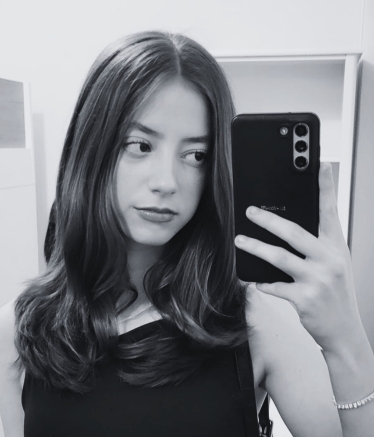
Desde chica se ha interesado por distintos medios de expresión artística. Influenciada por su hermano, ha visto más de 200 películas a lo largo de su vida, encontrándose más atraída por las comedias románticas y el terror psicológico, con títulos como Funny Games y Us entre sus favoritos. Su fascinación por el terror también se extiende a la literatura, siendo Mariana Enríquez una de sus autoras p...
Desde chica se ha interesado por distintos medios de expresión artística. Influenciada por su hermano, ha visto más de 200 películas a lo largo de su vida, encontrándose más atraída por las comedias románticas y el terror psicológico, con títulos como Funny Games y Us entre sus favoritos. Su fascinación por el terror también se extiende a la literatura, siendo Mariana Enríquez una de sus autoras preferidas. Es vegetariana, lo que la llevó a interesarse por la gastronomía, especialmente la repostería. Apasionada por el deporte, actualmente juega volleyball y este año empezará a competir a nivel federado.
Since she was little, she has been interested in various forms of artistic expression. Influenced by her brother, she has watched over 200 films throughout her life, finding herself particularly drawn to romantic comedies and psychological horror, with titles like Funny Games and Us among her favorites. Her fascination with horror also extends to literature, with Mariana Enríquez being one of her ...
Since she was little, she has been interested in various forms of artistic expression. Influenced by her brother, she has watched over 200 films throughout her life, finding herself particularly drawn to romantic comedies and psychological horror, with titles like Funny Games and Us among her favorites. Her fascination with horror also extends to literature, with Mariana Enríquez being one of her favorite authors. She is vegetarian, which led her to develop an interest in gastronomy, particularly baking. Passionate about sports, she currently plays volleyball and will begin competing at the federated level this year.
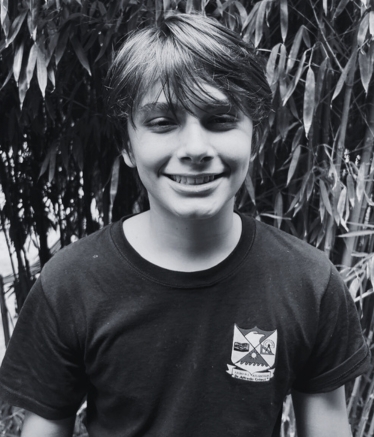
Vivo en Villa Argentina, Uruguay y nací el 7 de marzo del 2012 Tengo 13 años y 6 mascotas que son 4 gatas, 1 perro y una perra. Las gatas se llaman Luna, Nala, Michina y Dexter. La perra se llama Morocha y el perro se llama Lobo. Mis hobbies son los videojuegos, ver películas y jugar con mis amigos. También juego al baby football en el Club Atlántida Junior. Me apasioné por el cine cuando tenía...
Vivo en Villa Argentina, Uruguay y nací el 7 de marzo del 2012 Tengo 13 años y 6 mascotas que son 4 gatas, 1 perro y una perra. Las gatas se llaman Luna, Nala, Michina y Dexter. La perra se llama Morocha y el perro se llama Lobo. Mis hobbies son los videojuegos, ver películas y jugar con mis amigos. También juego al baby football en el Club Atlántida Junior. Me apasioné por el cine cuando tenía 5 años y vi la película “Mi vecino Totoro”. Desde ese momento me empezó a gustar cada vez más. Me gusta dormir y jugar al counter strike (un videojuego). Mi madre, que ya no está con nosotros, se llamaba Natalia y era Argentina. Mi padre se llama Raúl y actualmente vivimos solos. Voy al liceo número 1 de Atlántida y tengo bastantes amigos.
I live in Villa Argentina, Uruguay, and was born on March 7, 2012. I am 13 years old and have 6 pets: 4 cats, 1 dog, and 1 female dog. The cats are named Luna, Nala, Michina, and Dexter. The female dog is named Morocha, and the dog is named Lobo. My hobbies are playing video games, watching movies, and playing with my friends. I also play baby football at Club Atlántida Junior. I became passiona...
I live in Villa Argentina, Uruguay, and was born on March 7, 2012. I am 13 years old and have 6 pets: 4 cats, 1 dog, and 1 female dog. The cats are named Luna, Nala, Michina, and Dexter. The female dog is named Morocha, and the dog is named Lobo. My hobbies are playing video games, watching movies, and playing with my friends. I also play baby football at Club Atlántida Junior. I became passionate about cinema when I was 5 years old and watched the movie "My Neighbor Totoro." From that moment on, I started to like it more and more. I like to sleep and play Counter-Strike (a video game). My mother, who is no longer with us, was Natalia and was Argentinian. My father is Raúl, and we currently live alone. I go to the Liceo No. 1 in Atlántida and have quite a few friends.
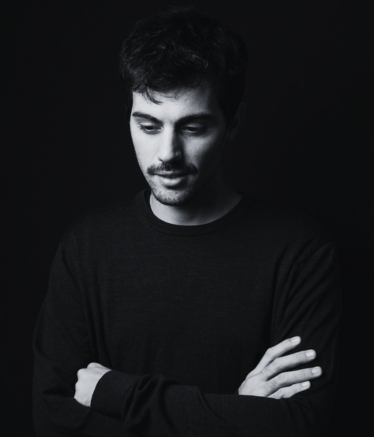
Francisco Lezama es cineasta, guionista y docente. Estudió actuación con Nora Moseinco, dramaturgia con Mauricio Kartun y Dirección de Cine en la Universidad del Cine de Buenos Aires, donde dicta Historia del Cine desde 2016. Además, trabaja en el archivo del Museo del Cine de Buenos Aires desde 2012. Produjo los films de found footage Sucesos Intervenidos (2016) y Archivos Intervenidos: Cine Escu...
Francisco Lezama es cineasta, guionista y docente. Estudió actuación con Nora Moseinco, dramaturgia con Mauricio Kartun y Dirección de Cine en la Universidad del Cine de Buenos Aires, donde dicta Historia del Cine desde 2016. Además, trabaja en el archivo del Museo del Cine de Buenos Aires desde 2012. Produjo los films de found footage Sucesos Intervenidos (2016) y Archivos Intervenidos: Cine Escuela (2017). Escribió, produjo y co-dirigió los cortos La Novia de Frankenstein (2015) y Dear Renzo (2016), exhibidos en Locarno, New York Film Festival, Viennale, BAFICI y AFI. En 2017 fue invitado al Artist Academy del Film Society of Lincoln Center. Un movimiento extraño (2024) ganó el Oso de Oro en Berlín y el Cóndor de Plata al mejor corto 2023/2024. Actualmente desarrolla su primer largometraje.
Francisco Lezama is a filmmaker, screenwriter, and teacher. He studied acting with Nora Moseinco, playwriting with Mauricio Kartun, and Film Direction at the University of Cinema in Buenos Aires, where he has been teaching Film History since 2016. Additionally, he has worked at the Buenos Aires Film Museum archive since 2012. He produced the found footage films Sucesos Intervenidos (2016) and Arch...
Francisco Lezama is a filmmaker, screenwriter, and teacher. He studied acting with Nora Moseinco, playwriting with Mauricio Kartun, and Film Direction at the University of Cinema in Buenos Aires, where he has been teaching Film History since 2016. Additionally, he has worked at the Buenos Aires Film Museum archive since 2012. He produced the found footage films Sucesos Intervenidos (2016) and Archivos Intervenidos: Cine Escuela (2017). He wrote, produced, and co-directed the short films La Novia de Frankenstein (2015) and Dear Renzo (2016), which were exhibited at Locarno, New York Film Festival, Viennale, BAFICI, and AFI. In 2017, he was invited to the Artist Academy of the Film Society of Lincoln Center. Un movimiento extraño (2024) won the Golden Bear at Berlin and the Silver Condor for Best Short Film 2023/2024. He is currently developing his first feature film.
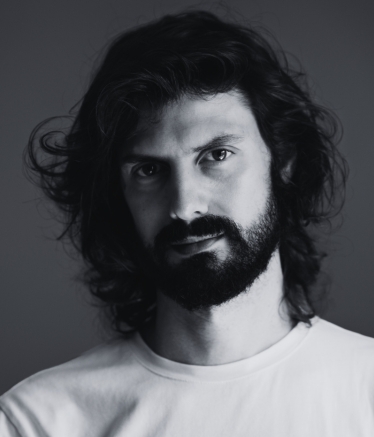
Daniel Tornero se titula en Dirección Cinematográfica en el Centro de Estudios Ciudad de la Luz. Desde hace diez años trabaja como ayudante de dirección en diferentes proyectos y es seleccionado por la SGAE para su taller de desarrollo de guión para películas de thriller y drama. Recientemente se incorpora como cineasta y docente en la iniciativa Cinema en curs y dirige Saturno, su primera películ...
Daniel Tornero se titula en Dirección Cinematográfica en el Centro de Estudios Ciudad de la Luz. Desde hace diez años trabaja como ayudante de dirección en diferentes proyectos y es seleccionado por la SGAE para su taller de desarrollo de guión para películas de thriller y drama. Recientemente se incorpora como cineasta y docente en la iniciativa Cinema en curs y dirige Saturno, su primera película, con la que participa en la Sección Oficial de Documentales del 27 Festival de Málaga tras haber ganado el premio a Mejor Documental en desarrollo en el Talent Lab del Atlántida Mallorca Film Fest ’21 y con la que es seleccionado para formar parte del Programa de Residencias de la Academia de Cine 2021-2022
Daniel Tornero graduated in Film Direction from the Centro de Estudios Ciudad de la Luz. For the past ten years, he has worked as an assistant director on various projects and was selected by the SGAE for its screenwriting development workshop for thriller and drama films. Recently, he joined the Cinema en Curs initiative as a filmmaker and teacher and directed Saturno, his first film, which parti...
Daniel Tornero graduated in Film Direction from the Centro de Estudios Ciudad de la Luz. For the past ten years, he has worked as an assistant director on various projects and was selected by the SGAE for its screenwriting development workshop for thriller and drama films. Recently, he joined the Cinema en Curs initiative as a filmmaker and teacher and directed Saturno, his first film, which participated in the Official Documentary Section of the 27th Málaga Film Festival after winning the Best Documentary in Development award at the Talent Lab of the Atlántida Mallorca Film Fest '21. He was also selected to be part of the 2021-2022 Film Academy Residency Program.
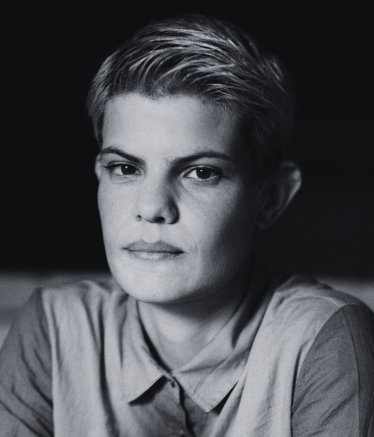
Es programadora y curadora de festivales que trabaja entre Berlín y Portugal. Es asesora del programa oficial de la Berlinale, miembro del comité asesor de Berlinale Panorama y programadora en Márgenes - Festival Internacional de Cine de Madrid. Entre 2021 y 2024 fue curadora en el Batalha Centro de Cinema (Oporto), donde co-curó los programas temáticos ‘Política de la Ciencia Ficción’, ‘Domestici...
Es programadora y curadora de festivales que trabaja entre Berlín y Portugal. Es asesora del programa oficial de la Berlinale, miembro del comité asesor de Berlinale Panorama y programadora en Márgenes - Festival Internacional de Cine de Madrid. Entre 2021 y 2024 fue curadora en el Batalha Centro de Cinema (Oporto), donde co-curó los programas temáticos ‘Política de la Ciencia Ficción’, ‘Domesticidades’ y ‘After Hours: Clubbing en el Cine’. Sus anteriores cargos de programación incluyen IndieLisboa, Berwick Film & Media Arts Festival, Oslo/Fusion, BFI London Film Festival y Queer Lisboa, siendo en este último co-directora. Ha organizado retrospectivas dedicadas a Angelo Madsen Minax, Claire Denis, Joanna Hogg, Luísa Homem, Annemarie Jacir, Mai Zetterling y Jane Campion.
She is a festival programmer and curator working between Berlin and Portugal. She’s an advisor to the official program of the Berlinale, a member of the advisory board at Berlinale Panorama, and a programmer at Márgenes - Festival Internacional de Cine de Madrid. Between 2021-2024 she was curator at Batalha Centro de Cinema (Porto), where she co-curated the thematic programmes ‘Politics of Sci-Fi’...
She is a festival programmer and curator working between Berlin and Portugal. She’s an advisor to the official program of the Berlinale, a member of the advisory board at Berlinale Panorama, and a programmer at Márgenes - Festival Internacional de Cine de Madrid. Between 2021-2024 she was curator at Batalha Centro de Cinema (Porto), where she co-curated the thematic programmes ‘Politics of Sci-Fi’, ‘Domesticities’ and ‘After Hours: Clubbing on Film’. Previous programming positions include IndieLisboa, Berwick Film & Media Arts Festival, Oslo/Fusion, BFI London Film Festival, and Queer Lisboa, the latter as co-director. She has organized retrospectives dedicated to Angelo Madsen Minax, Claire Denis, Joanna Hogg, Luísa Homem, Annemarie Jacir, Mai Zetterling, and Jane Campion.

Micaela Domínguez Prost es una periodista, docente y realizadora argentina que reside en Montevideo. Entre 2018 y 2022 se desempeñó como vicepresidenta de la Asociación de Críticos de Cine de Uruguay. Da clases en Universidad ORT y escribe semanalmente en LatAm cinema, medio digital especializado en la industria cinematográfica latinoamericana. Realizó una Maestría en Cine Documental en Escuela T...
Micaela Domínguez Prost es una periodista, docente y realizadora argentina que reside en Montevideo. Entre 2018 y 2022 se desempeñó como vicepresidenta de la Asociación de Críticos de Cine de Uruguay. Da clases en Universidad ORT y escribe semanalmente en LatAm cinema, medio digital especializado en la industria cinematográfica latinoamericana. Realizó una Maestría en Cine Documental en Escuela TAI de España y una Licenciatura en Film&Media Culture en Middlebury College de EEUU. Participó como jurado en el Festival Detour, el Festival Internacional de Animación, SAPCINE, el Festival Cinematográfico Internacional del Uruguay, el concurso de cortometrajes “Georges Méliès” y el Festival de Punta del Este. También realizó para LatAm cinema la cobertura in situ de numerosos festivales internacionales. Dirigió en 2013 el largometraje documental "Voz de murga" y codirigió en 2017 el largometraje documental "El molino quemado". En 2021 escribió el libro La mano de Diego.
Micaela Domínguez Prost is an Argentinian journalist, teacher, and filmmaker who resides in Montevideo. Between 2018 and 2022, she served as vice president of the Association of Film Critics of Uruguay. She teaches at Universidad ORT and writes weekly for LatAm Cinema, a digital media outlet specializing in the Latin American film industry. She earned a Master’s degree in Documentary Film from th...
Micaela Domínguez Prost is an Argentinian journalist, teacher, and filmmaker who resides in Montevideo. Between 2018 and 2022, she served as vice president of the Association of Film Critics of Uruguay. She teaches at Universidad ORT and writes weekly for LatAm Cinema, a digital media outlet specializing in the Latin American film industry. She earned a Master’s degree in Documentary Film from the TAI School in Spain and a Bachelor’s degree in Film & Media Culture from Middlebury College in the USA. She has served as a juror at the Detour Festival, the International Animation Festival, SAPCINE, the Cinemateca Festival, the "Georges Méliès" short film competition, and the Punta del Este Film Festival. She also provided on-site coverage for LatAm Cinema at numerous international festivals. She directed the 2013 documentary feature Voz de murga and co-directed the 2017 documentary feature El molino quemado. In 2021, she wrote the book La mano de Diego.

Fotógrafa profesional, editora de video y crítica cinematográfica. Se formó como Técnica en Comunicación Social en la UTU, donde se especializó en Radiodifusión. Actualmente, cursa la Licenciatura en Comunicación Audiovisual en la Facultad de Información y Comunicación (FIC - UDELAR). Su interés por la escritura la llevó a formarse en periodismo cultural en la Fundación Itaú (2015) y desde ento...
Fotógrafa profesional, editora de video y crítica cinematográfica. Se formó como Técnica en Comunicación Social en la UTU, donde se especializó en Radiodifusión. Actualmente, cursa la Licenciatura en Comunicación Audiovisual en la Facultad de Información y Comunicación (FIC - UDELAR). Su interés por la escritura la llevó a formarse en periodismo cultural en la Fundación Itaú (2015) y desde entonces se ha desarrollado como columnista en medios como Cooltivarte, Peliplat y el programa Café Express TV. Es secretaria de la Asociación de Críticos de Cine del Uruguay (ACCU) desde el 2024 y ha participado como jurado en diversos festivales nacionales e internacionales, entre ellos el Festival Internacional de Cine Estudiantil (FENACIES), el Festival Internacional de Cine de Punta del Este, Atlantidoc y el Festival Internacional de Cine en Guadalajara, representando a FIPRESCI. También ha sido votante en las ediciones 81° y 82° de los Golden Globes.
Professional photographer, video editor, and film critic. She trained as a Social Communication Technician at UTU, specializing in Broadcasting. She is currently pursuing a Bachelor’s degree in Audiovisual Communication at the Faculty of Information and Communication (FIC - UDELAR). Her interest in writing led her to train in cultural journalism at the Itaú Foundation (2015), and since then, she ...
Professional photographer, video editor, and film critic. She trained as a Social Communication Technician at UTU, specializing in Broadcasting. She is currently pursuing a Bachelor’s degree in Audiovisual Communication at the Faculty of Information and Communication (FIC - UDELAR). Her interest in writing led her to train in cultural journalism at the Itaú Foundation (2015), and since then, she has worked as a columnist for media outlets such as Cooltivarte, Peliplat, and the program Café Express TV. She has been the secretary of the Association of Film Critics of Uruguay (ACCU) since 2024 and has served as a juror at various national and international festivals, including the International Student Film Festival (FENACIES), the International Film Festival of Punta del Este, Atlantidoc, and the International Film Festival in Guadalajara, representing FIPRESCI. She has also been a voter at the 81st and 82nd Golden Globe Awards.
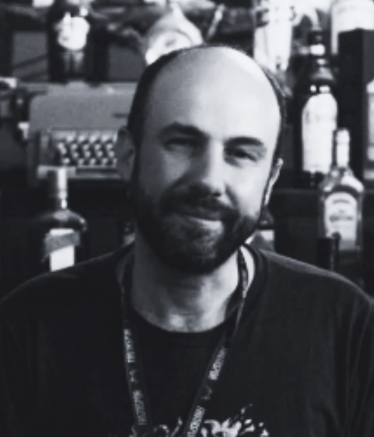
Más de 20 años de ejercicio de la crítica cinematográfica en Semanario Brecha y otras publicaciones como Otros Cines, Dossier, El Boulevard, y Guía 50, entre otras. Ha oficiado como jurado en los festivales de Toronto (TIFF), Saguenay (Quebec), Rotterdam (IFFR), Fantaspoa (Porto Alegre), Mar del Plata, VICVIÑA (Viña del Mar), BAFICI (Buenos Aires), BISFF (Bengaluru), y otros. Es autor de la biogr...
Más de 20 años de ejercicio de la crítica cinematográfica en Semanario Brecha y otras publicaciones como Otros Cines, Dossier, El Boulevard, y Guía 50, entre otras. Ha oficiado como jurado en los festivales de Toronto (TIFF), Saguenay (Quebec), Rotterdam (IFFR), Fantaspoa (Porto Alegre), Mar del Plata, VICVIÑA (Viña del Mar), BAFICI (Buenos Aires), BISFF (Bengaluru), y otros. Es autor de la biografía del actor César Troncoso - Oficio de alto riesgo publicada en 2020. Fue seleccionado por la Berlinale (Festival de cine de Berlín) entre más de 100 postulados para el taller “Talent press”, en febrero de 2011. Impartió talleres de crítica y análisis cinematográfico en el programa de Locaciones Montevideanas de la Intendencia Municipal de Montevideo, en la Mostra de Cinema Latinoamericano de Rio Grande (Brasil), así como en los Festivales de Punta del Este y Porto Alegre (Fantaspoa). En 2022 es nombrado Presidente de ACCU (Asociación de Críticos de Cine del Uruguay). Desde el año 2024 es Vicepresidente.
With over 20 years of experience in film criticism, he has written for Semanario Brecha and other publications such as Otros Cines, Dossier, El Boulevard, and Guía 50, among others. He has served as a juror at festivals including Toronto (TIFF), Saguenay (Quebec), Rotterdam (IFFR), Fantaspoa (Porto Alegre), Mar del Plata, VICVIÑA (Viña del Mar), BAFICI (Buenos Aires), BISFF (Bengaluru), and others...
With over 20 years of experience in film criticism, he has written for Semanario Brecha and other publications such as Otros Cines, Dossier, El Boulevard, and Guía 50, among others. He has served as a juror at festivals including Toronto (TIFF), Saguenay (Quebec), Rotterdam (IFFR), Fantaspoa (Porto Alegre), Mar del Plata, VICVIÑA (Viña del Mar), BAFICI (Buenos Aires), BISFF (Bengaluru), and others. He is the author of the biography of actor César Troncoso, Oficio de alto riesgo, published in 2020. He was selected by the Berlinale (Berlin Film Festival) from over 100 applicants for the “Talent Press” workshop in February 2011. He has conducted workshops on film criticism and analysis in the Locaciones Montevideanas program of the Montevideo Municipal Government, at the Mostra de Cinema Latinoamericano in Rio Grande (Brazil), as well as at the Punta del Este and Porto Alegre (Fantaspoa) Film Festivals. In 2022, he was appointed President of ACCU (Association of Film Critics of Uruguay). Since 2024, he has served as Vice President.
Noticias · Boletín · Salas · Archivo fílmico · Institucional · ¿Quiénes somos? · Contacto
Cinemateca Uruguaya – Bartolomé Mitre 1236, Montevideo, Uruguay. Teléfono: (+598) 2914 75 69